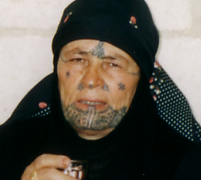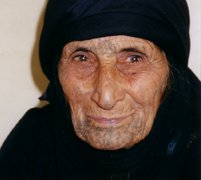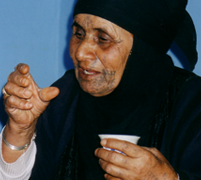Jordan - The Healers

The healing arts have a long standing tradition in the Arab world. Many westerners do not realize that while Europe was in the dark ages, Arab physicians of the 8th to the 11th century were laying the foundations of the institutions and science of today's modern medicine.
Arab scholars studied and translated the Greek texts. They opened the first true hospitals and pharmacies and designed early clinical drug trials. They understood the importance of diet, and produced medical texts that were used until well into the 19th century.
Dr. Oran and her colleagues believe important clues might lie in Arabic folk medicine and ancient ways that are still practiced by the Bedouins of the Middle East.
Islam teaches that God has provided a remedy for every illness, and man should search for them and use them with skill and compassion. Bedu healers offer their service free of charge, believing it is their duty to help anyone who needs it.
But most patients return later with a gift for the healer if the cure is successful. Just as in modern medicine, there are many specialties and the traditional Bedu healers also have specialties.
For example, the Bedu healer Om Owyed is an expert in childhood illnesses and diseases. Her knowledge of healing has been passed down from her mother and her mother's mother before that. Today she passes on the knowledge to her son.
Much of Om Owyed's inventory comes from an herbalist. She uses special, non-toxic medicines to treat children under the age of 5. Her reputation is known throughout the Badia.
Another healer, Om Menwer, specializes in the treatment of the eyes. She is between 80 and 90 years old. It is not unusual for older Bedu to be unsure of their age. She learned about the medicinal plants from her mother, who learned from her mother.
Om Menwer, who collects her own plants and dries them, says many of her healing herbs are getting more difficult to find in the wild. She says ten species grown only in her area have already been wiped out.
Another healer, Om Salim specializes in treatment of skin problems. She collects and dries her herbs in a special tent in her back yard. In order to insure a supply of herbs when they are difficult to find in the desert, she grows ten different medicinal plants in a special garden. Those herbs that she cannot cultivate in her garden are getting extremely difficult to find.
Therefore, the patient often visits the healer to get a list of the herbs she will need and then travels to large village or town to buy those plants from the herbalist, or Attar, as they are called in Arabic. Then the patient must return to the healer who prepares the treatment by boiling it in oils or blending it with other plant materials. Even in Amman, the capital city where modern medicine is readily available, you can still find herbalist shops throughout the city.
The Attars buy their herbs from specialized collectors who work throughout the region. However, the plants attars and healers rely on for their cures are increasingly threatened by environmental degradation. Even when looked for by skilled collectors, the pressure on the land has caused many of these herbs to disappear or become difficult to find. You find them only in areas where not many people go. In the urbanized areas they have disappeared.
In the Badia, large herds are stressing the sparse grazing lands. Often plants are eaten to the ground before they can produce seeds. Farmers are increasingly relying on imported feeds. Further damage occurs when people cut down or dig up woody shrubs for fuel, which worsens erosion and ultimately eliminates that species from the landscape.
To raise more food, so-called deep plowing is used to cultivate the edges of the desert, so that grain crops like wheat, barley and lentils can be planted. But yields are usually low. The ecology of the Badia teeters on the brink as pressure to feed growing populations increases.

A traditional Beduin healer

Om Menwer

A Beduin healer with a traditional herbal remedy
For more information about this website.
Contact the webmaster to report any problems with this site.
New Mexico State University is an equal opportunity/affirmative action employer and educator. NMSU and the U.S. Department of Agriculture cooperating.